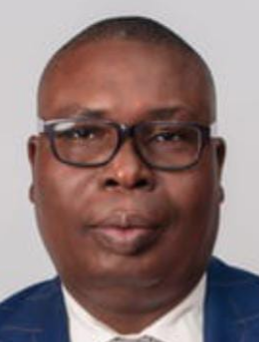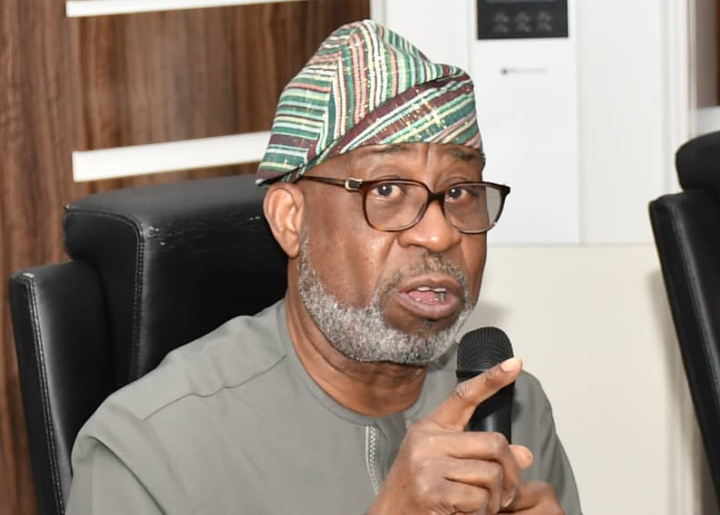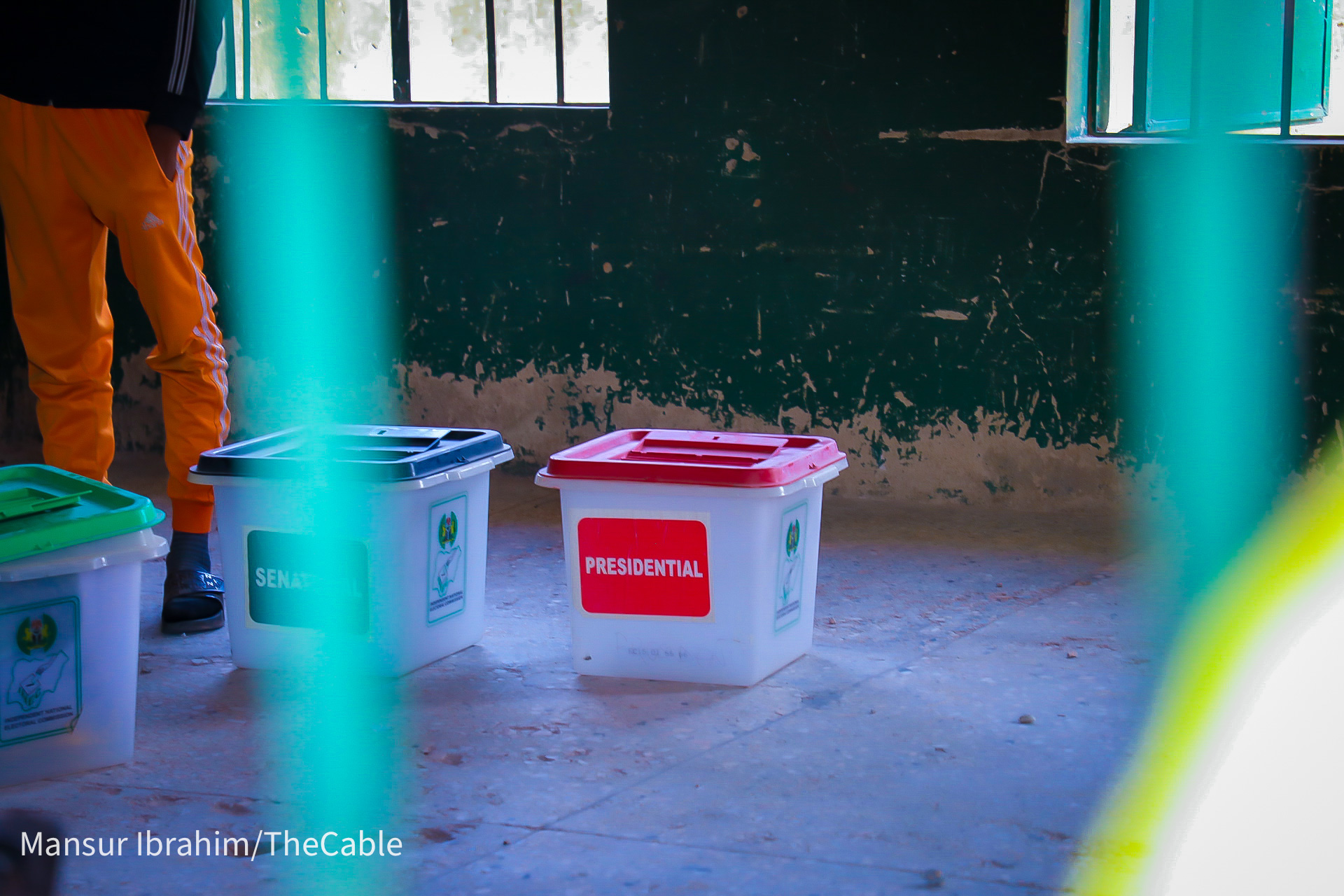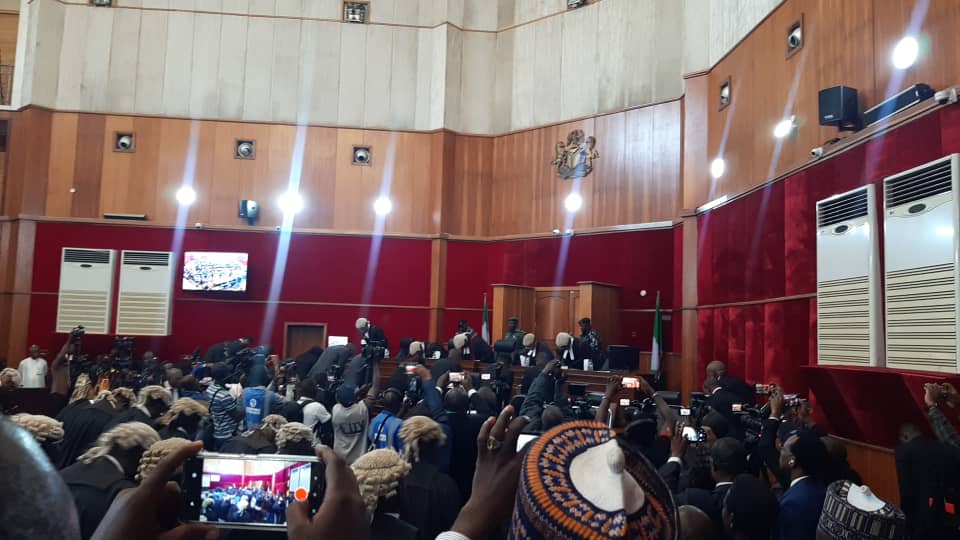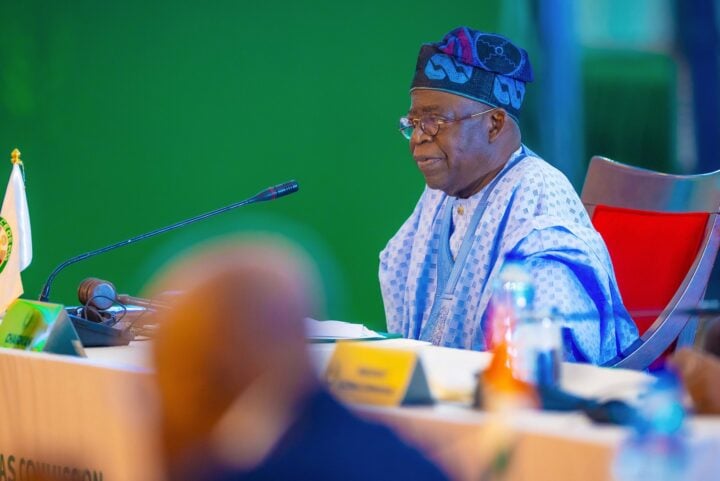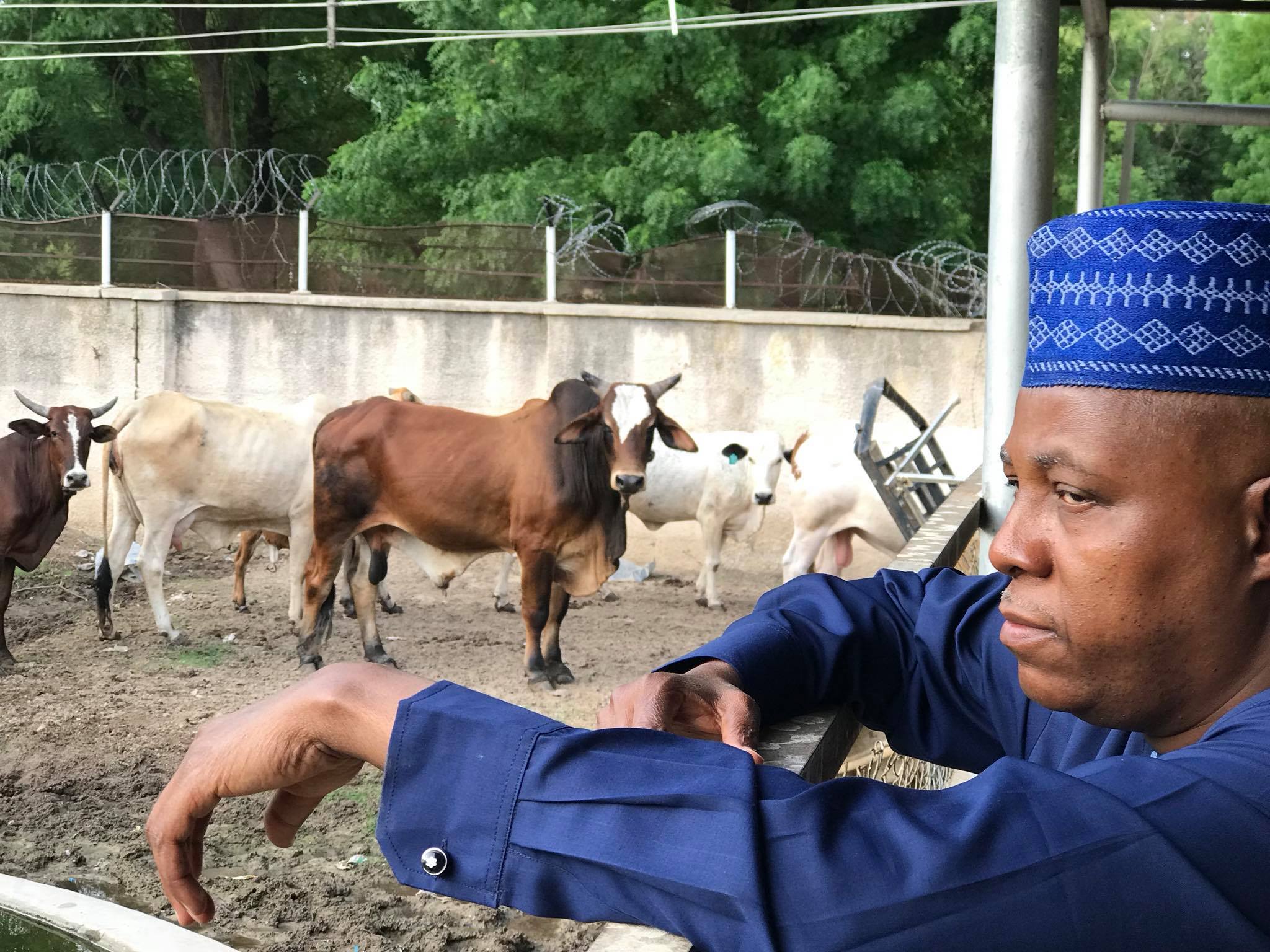As most people were enjoying their desired rest in the first weekend of September 2023, Nigeria’s new Minister of Solid Minerals, Henry Oladele Alake and his inner caucus for the task ahead were ensconced in the cauldron of the renewed hope working. They were working tirelessly in preparation for the press conference to unveil the new agenda for the transformation of Nigeria’s mining sector.
The heavens wouldn’t have fallen if Mr. Alake had delayed the unveiling of his agenda to the first working week of September, but the infectious passion with which he has embraced his appointment and approval to head the ‘new’ ministry wouldn’t let him wait that long. He elected therefore to host the press conference in the afternoon of Sunday, 3rd September, 2023 while many of his fellow ministers and fellow Nigerians were busy enjoying the serenading calm, comfort and caresses of Sunday’s typical restful bliss
Call the press conference the ‘Big Ideas’ conference and you will be absolutely spot on. From commencement to completion, Mr. Alake left no one in doubt about his passion, preparedness and the possibilities to make things work in a manner Nigerians have never experienced in one of the country’s most promising but acutely under-performing sector of the economy.
The first big information the Minister of Solid Minerals, Mr. Dele Alake revealed is the audacious declaration that the ministry under his leadership will be primed to add at least 50% to the Nigerian economy. This is quite ambitious to say the least and many Nigerians are already positing that the target is out-rightly unattainable. Others see the target as analogous to having an exaggerated opinion of one’s abilities. But eh! since when has big dreams become a crime?
Advertisement
It’s a naked truth amongst the discerning that expecting the solid minerals sector to contribute up to 50% to the country’s Gross Domestic Product is not something that is completely impossible. However, in a sector that has never been stable enough to find its feet, it will be understandable if not many Nigerians share the confidence and optimism of Minister Alake and his leadership team.
The 2021 contributions of the solid minerals sector to Nigeria’s GDP stood at the 0.63 per cent. The performance was an improvement compared to previous years where it contributed 0.45 per cent in 2020 and 0.26 per cent in 2019. Despite this improvement, the contributions of the industry to the nation’s economy is still negligible and disappointing considering its humongous potentials. The low output in the industry is because over 90 percent of the activities of the mining industry are dominated by artisanal operators. The previous administration set the target of increasing the output to 5% in 2025 based on their knowledge and assessment of the sector’s lethargic progression year on year.
The annual Nigeria Extractive Industries Transparency Initiative (“NEITI”)’s Solid Minerals Audit Report produced during Buhari’s first tenure put the statistics of the performance of the sector during Goodluck Jonathan’s years at N33.86 billion in 2013, and in 2014 at N55.82 billion accounting for just 0.11 percent of GDP. Things improved a bit in 2015 and a marginal growth was recorded. The revenue increased to around N69.2 billion and this amounted to 0.33 percent contribution to GDP.
In Muhammadu Buhari’s second year in office, figures published by the National Bureau of Statistics (“NBS”) showed that the minerals and mining sector contributed 0.55 percent to Nigeria’s GDP. The corresponding figures for Botswana, DRC and South Africa for the same period stood at 40 percent, 25 percent and 18 percent respectively.
Advertisement
The federal government generated N193.59 billion from the solid minerals sector in 2021. The figure showed an increase of N60.32 billion or 51.89 per cent growth when compared to the 2020 revenue of N116.82 billion which was only 0.45 percent. Nigeria doing just 0.63 percent when our contemporaries like Botswana, DRC and South Africa are clocking over 40 percent, 25 percent and 18 percent respectively isn’t praiseworthy in any way. This becomes even more worrisome when you consider that the total revenue Nigeria earned from between 2007 to 2021 is just N814.59 billion with 2021 earnings being the highest.
Nigeria is endowed with 44 different mineral types in varying commercial quantities. They are classified as industrial minerals, energy minerals, metallic ore minerals and construction minerals. These minerals include barite, kaolin, gypsum, feldspar and limestone (industrial minerals); bitumen, lignite and uranium (energy minerals); gold, cassiterite, columbite, iron ore, lead-zinc and copper (metallic ore minerals); and granite, gravel, laterite and sand (construction minerals).
These different mineral resources are scattered all over the country and could be found in more than 500 different locations. The way these 44 mineral resources are divinely strategically scattered all over Nigeria unlike the liquid resources simply mean that there is hardly any state or local government council in Nigeria that is not endowed with one mineral type or the other. They bear irrefutable testimony of Nigeria’s uncommon blessings and endowments naturally. A sound understanding of how the appropriate harnessing of these resources can catapult Nigeria to an enviable position in the committee of the richest 25 nations on earth can indeed make a brilliant, sincere, passionate and committed minister to dream of leveraging on their worth to add 50% to the country’s GDP.
The missing link in the ability of Nigeria’s extractive industry over the past decades to help unleash the uncommon greatness of Nigeria has been the absence of innovative leadership, accountability, patriotic zeal, adequate technical capabilities and much required finance to unlock the great potentials therein. Dele Alake through his Lord’s Day press conference unveiled a 7-point agenda that revealed he has a clear understanding of these inhibiting factors.
Advertisement
Asides from driving the sector to contribute 50% to Nigeria’s GDP, the 7-point agenda lays out the other plans to help achieve this lofty goal. The ministry is poised to attract Foreign Direct Investment to the country through the innovative offerings in the works; promote the creation of the Nigerian Solid Minerals Corporation, Joint Ventures with Mining Multinationals, Big Data on specific seven priority minerals and their deposits, 30-day grace for illegal miners to join artisanal cooperatives, Mines Surveillance Task Force and Mine Police, Comprehensive review of all mining licenses and the creation of six (6) Mineral Processing Centres to focus on Value-Added products.
Alake’s 7 – point agenda looks good to jumpstart this critical sector and make it more competitive in the committee of nations with high – performing extractive industries. Unfortunately, agendas don’t drive themselves. Agendas are mere underlying intentions or motives that could become realities if well pursued. They could also perish without seeing the rays of light if poorly implemented.
To translate this lofty ‘Agenda for the Transformation of the Solid Minerals for International Competitiveness and Domestic Prosperity’ into reality, the minister and his tactical squad must be ready to leave no stone unturned and be determined to do every necessary thing to achieve the objectives.
The first thing to do is to fully understand what the target of 50% of Nigeria’s GDP means in monetary terms. According to the Nigeria Extractive Industries Transparency Initiative (NEITI)’s latest audit report referenced earlier, the federal government generated N193.59 billion from the solid minerals sector in 2021, N116.82 billion in 2020 and N79.96 billion in 2019 despite the country’s huge solid mineral deposits in the country. Nigeria’s GDP in 2021 reached around 173.5 trillion NGN, over 390 billion U.S. dollars. This is an increase of around 30 trillion-naira increase over the 144. 210 trillion naira in 2019. The GDP growth rate in 2022 stood at 3.10 per cent, a decline from the 3.40 per cent recorded in 2021 according to the National Bureau of Statistics (NBS). If we work with the 2021 figures, 50% of the GDP is 86.75 trillion naira. This is a hefty target that Mr. Alake and the staff of the ministry must pursue to add to the country’s GDP. Taking a flight from 0.63 percent (N193.59 billion) to 50 percent (N86.75 trillion) is not going to be a tea party. Achieving the target even becomes more interesting when you are the Minister in a government headed by a President who has great appetite for increasing revenue growth for development projects. Mr. Alake and his team may have to aim for a revenue figure that is twice or even thrice the 86.75 trillion-naira baseline.
Advertisement
The second issue the minister must address is that of the quality of human capital of the ministry. They are the ones required to take ownership of the transformation agenda and drive the creation of the conducive environment necessary to deliver the target. Nigeria’s civil service has a lot of brilliant men and women. The service is also hugely populated with thousands of workers who lack the kind of patriotic zeal and professionalism needed to drive this kind of ambitious vision. The poor quality of the civil service is one of the biggest challenges to the successful implementation of good policies in Nigeria. If this agenda will not be thrown into the dustbin of history unaccomplished, the minister must develop a special capacity re-engineering program to turn every employee to a passionate advocate of the agenda.
Political will is the third key requirement needed to make this kind of lofty vision come to fruition. Already, the political will to dream has been boldly communicated by the Honourable Minister who chose the solid minerals industry out of passion to make great things happen there. The same will to dream has been communicated by the President who graciously assigned Mr. Alake to pick that portfolio. Political will must be sustained across board and all the way if these 7 point agenda must be achieved. The political will to dream is not automatically tantamount to the will to do and is much more than dreaming and doing. The will to dream is good, but the will to do is better. Beyond dreaming and doing, the will to dare to see a vision, a dream or an agenda to its logical end is paramount.
It is the will to dare that enables one to overcome the obstacles that could arise to frustrate the efforts. Nothing good will be achieved without the will to dare. To turn the fortune of Nigeria’s solid minerals sector (and any sector for that matter) around, there are many internal and external forces to dare and upstage.
Advertisement
The field of daring the monsters, demons and strong forces of opposition is not a place for the chicken-hearted. The minister and all his line officers will therefore need loads of courage and unwavering determination to achieve positive results. The greatest energy of the will to dare, is integrity. When the hand of a change agent is clean, the confidence to courageously dare every obstacle is unbreakable. But once, the crusaders and vision drivers themselves are tainted with the leaven of corruption, compromises and racketeering, the energy to dare is quickly drained by the lure of venality.
In pursuing the lofty agenda to transform Nigeria’s solid minerals industry for ‘International Competitiveness and Domestic Prosperity’, the issue of sustainability must be accorded premium priority. In making sustainability a premium priority, the physical environment of the communities where the solid minerals are located and institutionalizing local content development must be creatively addressed. This is to avoid the mistakes made with the extractive activities around Nigeria’s liquid minerals for over six decades. It’s not a thing of pride that the oil producing communities in Nigeria continue to grapple with the challenges of oil spillage, environmental degradation and gas flaring after nearly sixty decades of operations. It’s also not a thing of pride that the technical operations of the sector remain largely in the hands of foreign oil companies and expatriates.
Advertisement
To promote the environmental protection of the host communities, best practices in environmental justice should be upheld all the way. Anything short of this will bring greater loss on the long run than the financial gain to be made in the short run.
In institutionalizing local content development agenda for the solid minerals industry, a careful analysis of the of the local content development initiatives for the oil and gas industry must be done and rigid timelines of actualization must be set.
It was the desire to increase Nigerians participation in the Oil and Gas industry that led to the enactment of the Nigerian Oil and Gas Industry Content Development (NOGIC) Act which received Presidential assent in April 2010.
Advertisement
The Local Content Act defines local content as “the quantum of composite value added to or created in Nigeria through utilization of Nigerian resources and services in the petroleum industry resulting in the development of indigenous capability without compromising quality, health, safety and environmental standards”.
Local content is described as the development of local skills, oil and gas technology transfer, and use of local manpower and local manufacturing.
The dawn of the local content policy arose as a result of the realization that the multinational or international companies had significant dominance in the petroleum sector.
The Local Content Act is a pivotal mechanism that enables Nigerian Companies to contribute enormously towards the growth of the Nigerian economy by encouraging value addition, job opportunities, and also the award of various oil contracts and projects.
The Local Content Act established The Nigerian Content Development and Monitoring Board (NCDMB). The Local Content Board is charged it with the responsibility “to make procedure that will guide, monitor, coordinate and implement the provisions of the Act”. The Local Content Board monitors the activities of the operators, all alliance partners and contractors.
Oil was discovered in Nigeria sixty – four years ago. The failure to infuse the local content vision in the oil and gas sector development early enough is responsible for the continuous dominance of foreigners in the sector. The Ministry of Solid minerals must learn from this to lay a solid foundation for the development of the solid minerals sector for national prosperity.
Osho is a passionate advocate of Nigeria’s emergence as the pride of Africa through quality and innovative leadership. He is a global road safety advocate and co-founder of Safety Beyond Borders & Inspire Nigeria Initiative.
He was the candidate of the Social Democratic Party (SDP) for Senate in FCT during the 2023 elections.
Views expressed by contributors are strictly personal and not of TheCable.
